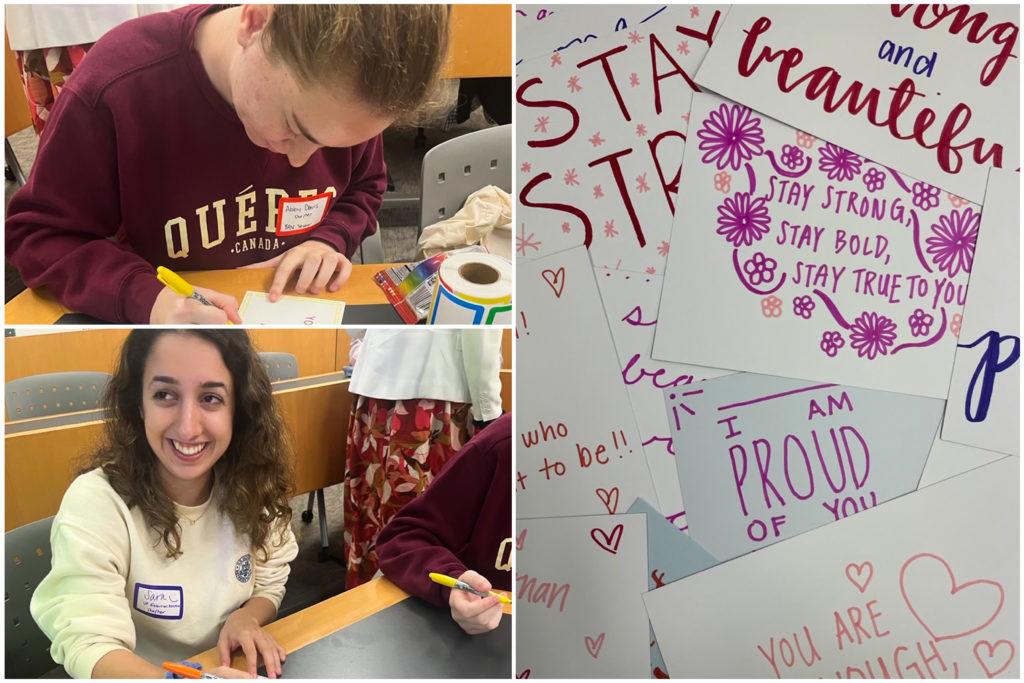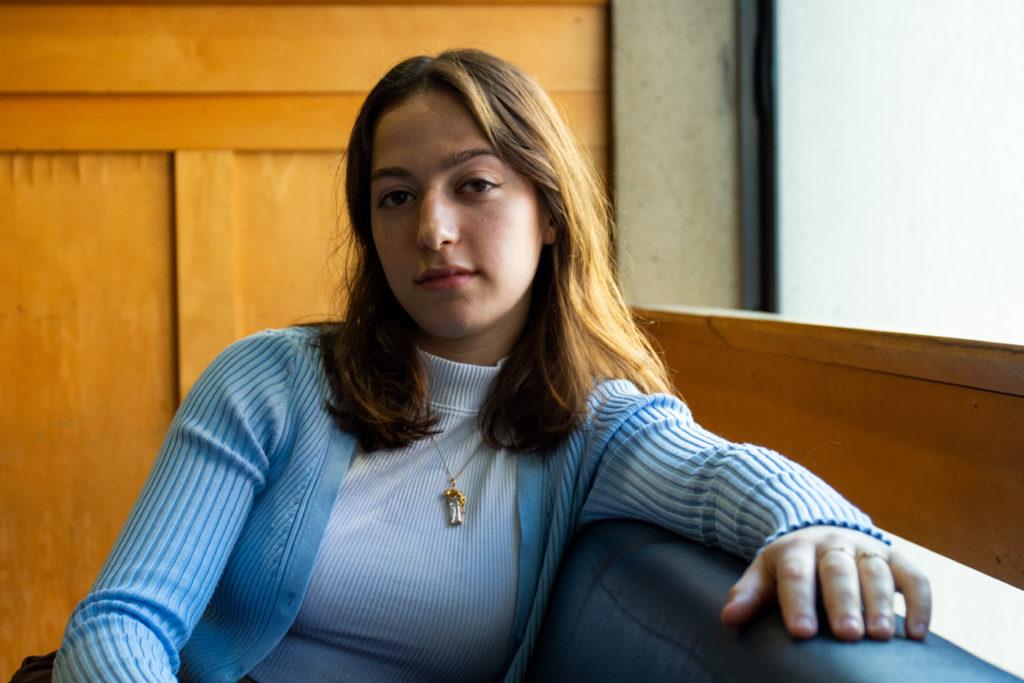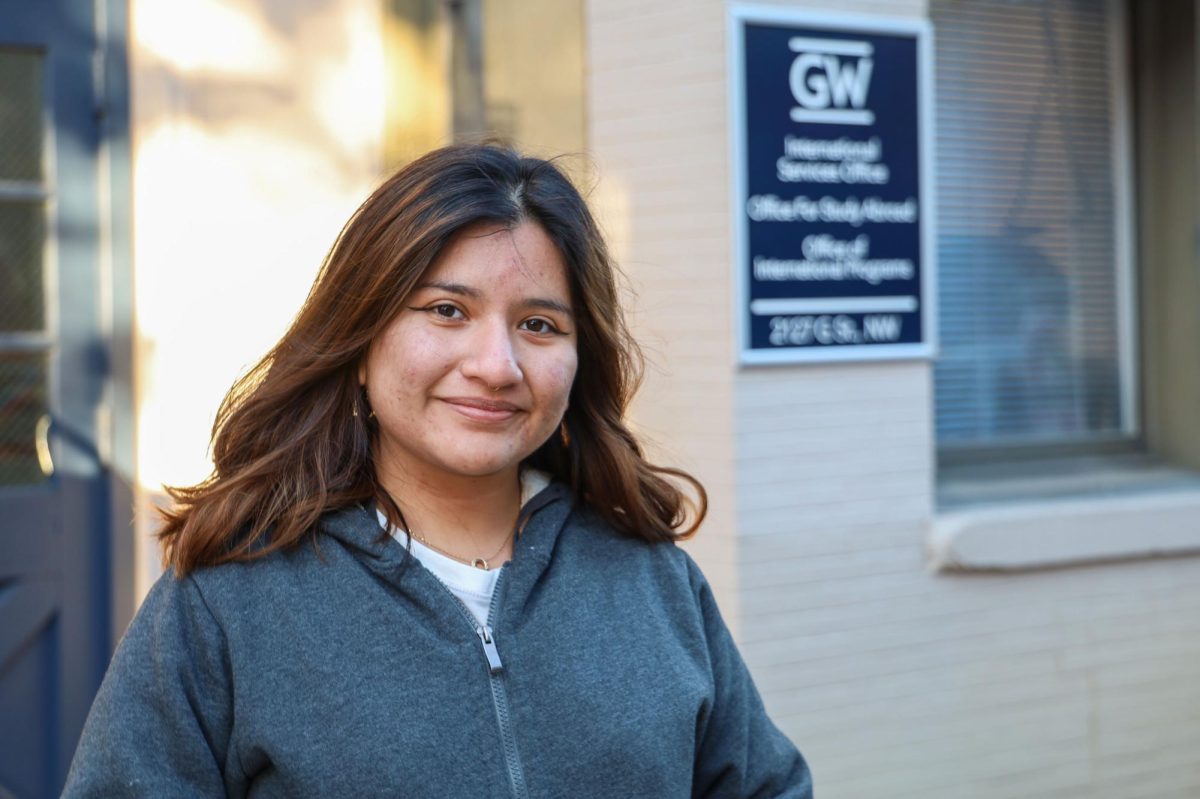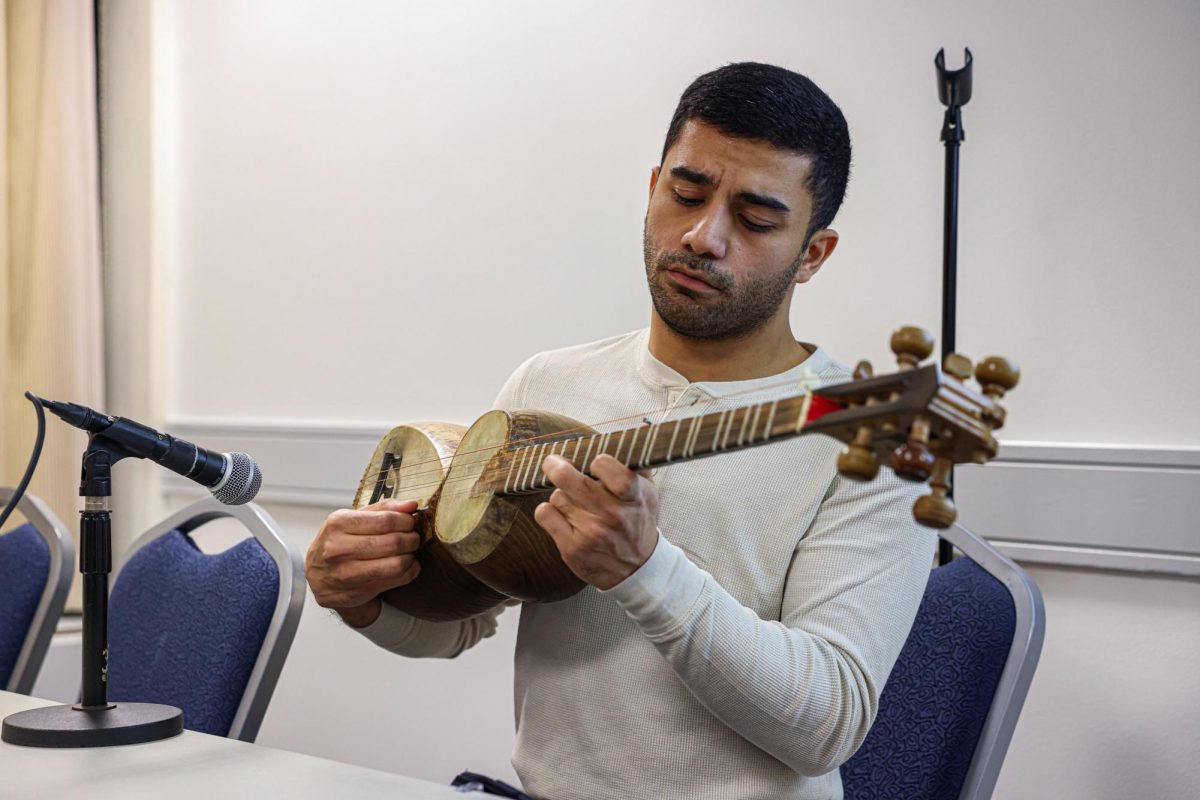Nine student organizations collaborated with the University and local LGBTQ+ groups last week to host 12 social and educational events for Trans Awareness Week.
The events, spanning from Trans 101 educational sessions exploring transgender identities to a student open mic night in the University Student Center, concluded Sunday with Trans Day of Remembrance – an internationally recognized annual observance of lives lost to anti-transgender violence – hosted by five D.C. LGBTQ+ organizations in Freedom Plaza. Student leaders said the week’s programming provided a space for transgender students to celebrate their own identity and for allies of the trans community to learn more about how to support transgender people and understand the transgender experience on a deeper level.
Trans Awareness Week kicked off last Thursday with an event hosted by GW Women in Business and the Business Pride Network, where the groups wrote letters to support the transgender community. Events like Pride Abroad – a presentation by the Office of Study Abroad and Out in IA – offered LGBTQ+ students an opportunity to learn about navigating their identity while adapting to new laws and social norms that may be critical of the LGBTQ+ community while studying abroad in foreign countries.
The week also included social events like Late Night at the MSSC on Saturday, an event where community members played card games and had dinner, and Trans Day of Relaxation at the Multicultural Student Services Center on Friday, a space for students to destress and connect with the community after confronting difficult topics like violence against the LGBTQ+ community.
Senior Maya Younes, the president of Transgender and Non-Binary Students of GWU, said this year’s programming was built on collaborations with other students organizations, like Allied in Pride and the Delta Lambda Phi fraternity, and events like tabling for transgender visibility and a tea party discussing hormone replacement and transition therapy. They said this year’s events were similar to the organization’s first year of Trans Awareness Week events in 2019.
They said by opening the week with joint event with student organizations, Trans Awareness Week encompassed broader student groups and represented the intersectional identities that many transgender people hold. These collaborations included a movie screening with GW Black Defiance of “Check It” – a film about a D.C. gang formed by Black, transgender youth to protect themselves from violence – and a panel with the Disabled Students Collective.
“We don’t encompass every single identity, so we didn’t want it to be just ours,” Younes said of TNBS’s leadership.
Younes said TNBS worked with the MSSC to co-host some of the week’s programming, like the the Late Night at the MSSC event, where MSSC staff provided students with a free meal, snacks and transgender flags. They said the week’s programming aimed to provide students with a safe, judgment-free space to ask questions and learn more about transgender individuals.
“A lot of people just don’t understand trans people or transness,” Younes said. “There’s a lot of cancel culture at GW, and it’s like, you don’t want to say the wrong thing in class, but like you might not fully understand.”
Sophomore Jovanna Walker, the vice president of GW Black Defiance, said she proposed the idea of hosting the “Check It” movie screening after receiving an email asking student organizations about event planning for the week. She said viewers discussed the intersections of race, gender and sexuality once the screening concluded.
“I hope that after the film and discussion, or even just interacting with Black Defiance, people are willing to go outside of Foggy Bottom, interact with members of the D.C. community and recognize how they’re being disproportionately affected because of their identities,” she said.
Sophomore Laine Schlezinger, TNBS’s director of education, said providing spaces for transgender students to relax and celebrate their identity is vital after spending the week advocating for transgender visibility and remembering transgender individuals who have been killed in transphobic violence. They said TNBS offered coloring pages and a space to hang out with friends during Trans Awareness Week, allowing transgender students to “just live their lives.”
“It’s not just remembrance, it’s ‘How can we also prioritize joy and let our community relax after holding the burdens of education, after fighting nonstop for several years to keep our access to things like medical care alive?’” Schlezinger said. “We need and deserve a space to just chill out for a little bit.”
Schlezinger said coming to college is often a transgender student’s first opportunity to engage with other transgender individuals and find their own community, so offering programming for these students to connect during Trans Awareness Week is a “powerful tool.”
They said professors should improve education on transgender identity with classes that focus on the politics of LGBTQ+ identity, which could allow students to learn about historical figures with identities similar to their own.
“I think that the chance to learn about yourself in a valid, educational manner makes you feel empowered,” Schlezinger said. “You’re like, ‘Oh, I didn’t realize that people like me have existed through history, through politics, through literature.’”
Sophomore Arlen Bandy, the vice president of TNBS, said they want to see the University implement more classes about transgender identity and history moving forward. They hope faculty will incorporate discussions of gender politics into political science courses, making gender politics and LGBTQ+ history the backbone of more studies instead of just a separate feature of some classes.
“I think the campus could do better in incorporating trans identity,” they said. “As more of, ‘This is part of the educational setting,’ not next to it.”
They said Trans Awareness Week offers a space for transgender students to gain “community and comfort,” and the programming allows allies of the transgender community to educate themselves and achieve a stronger knowledge of transgender identities.
“I would say as a whole, anybody who comes to these events, I think, is going to probably walk away with a deeper understanding of transness,” Bandy said.








